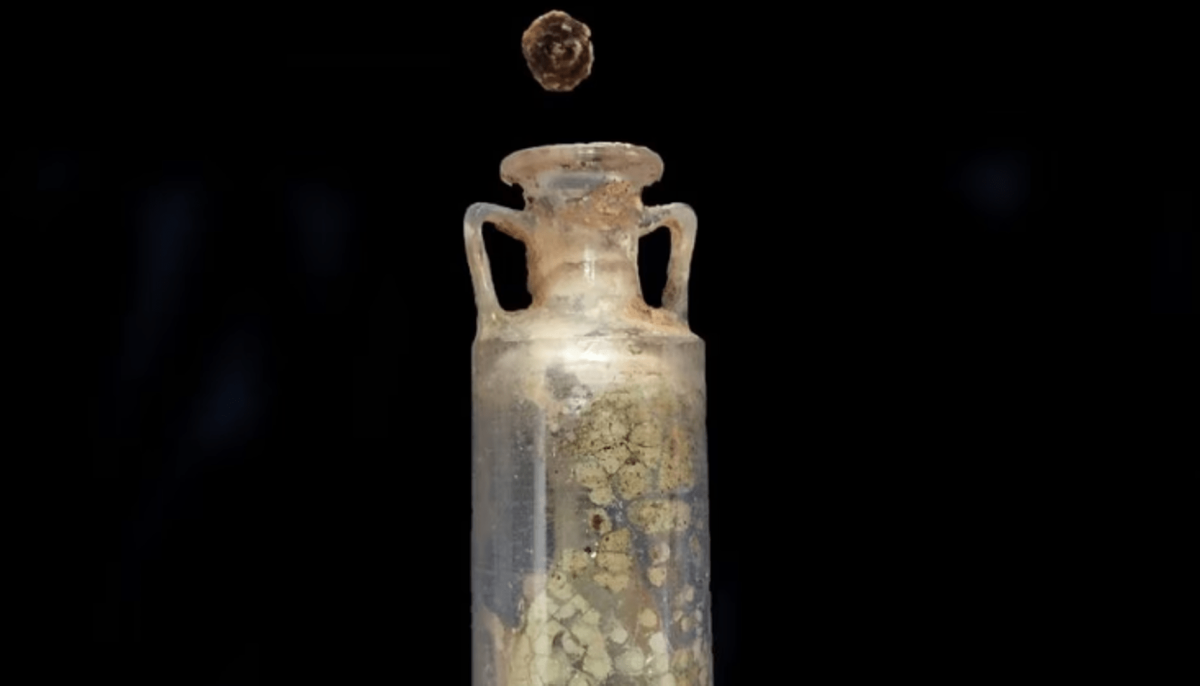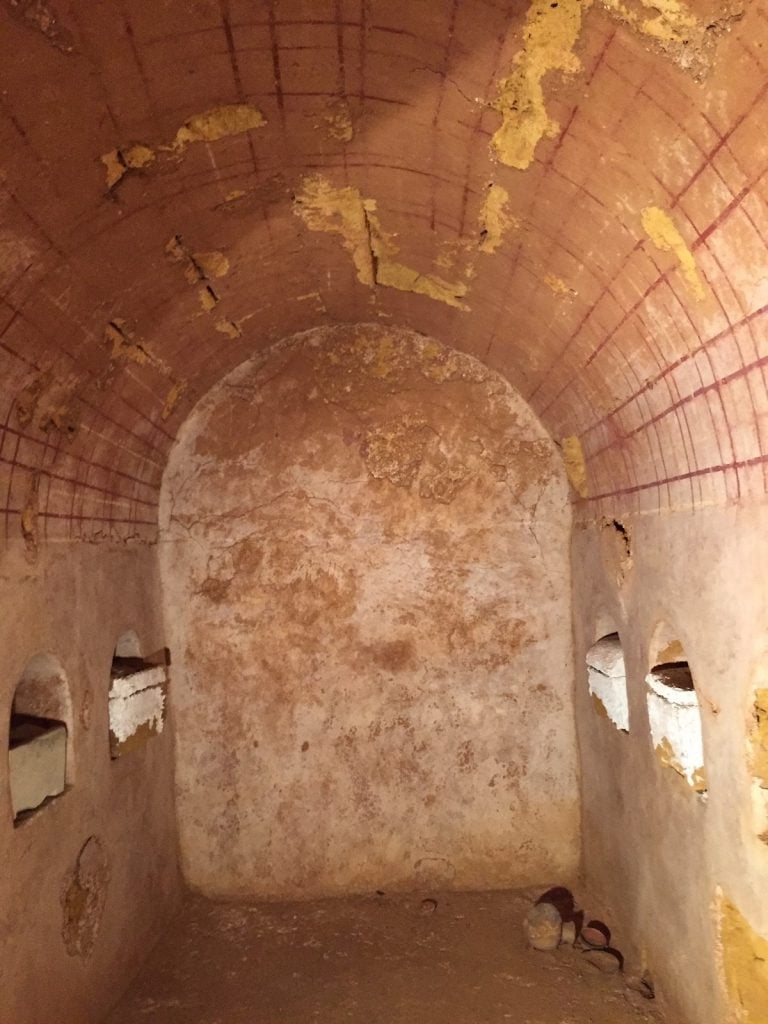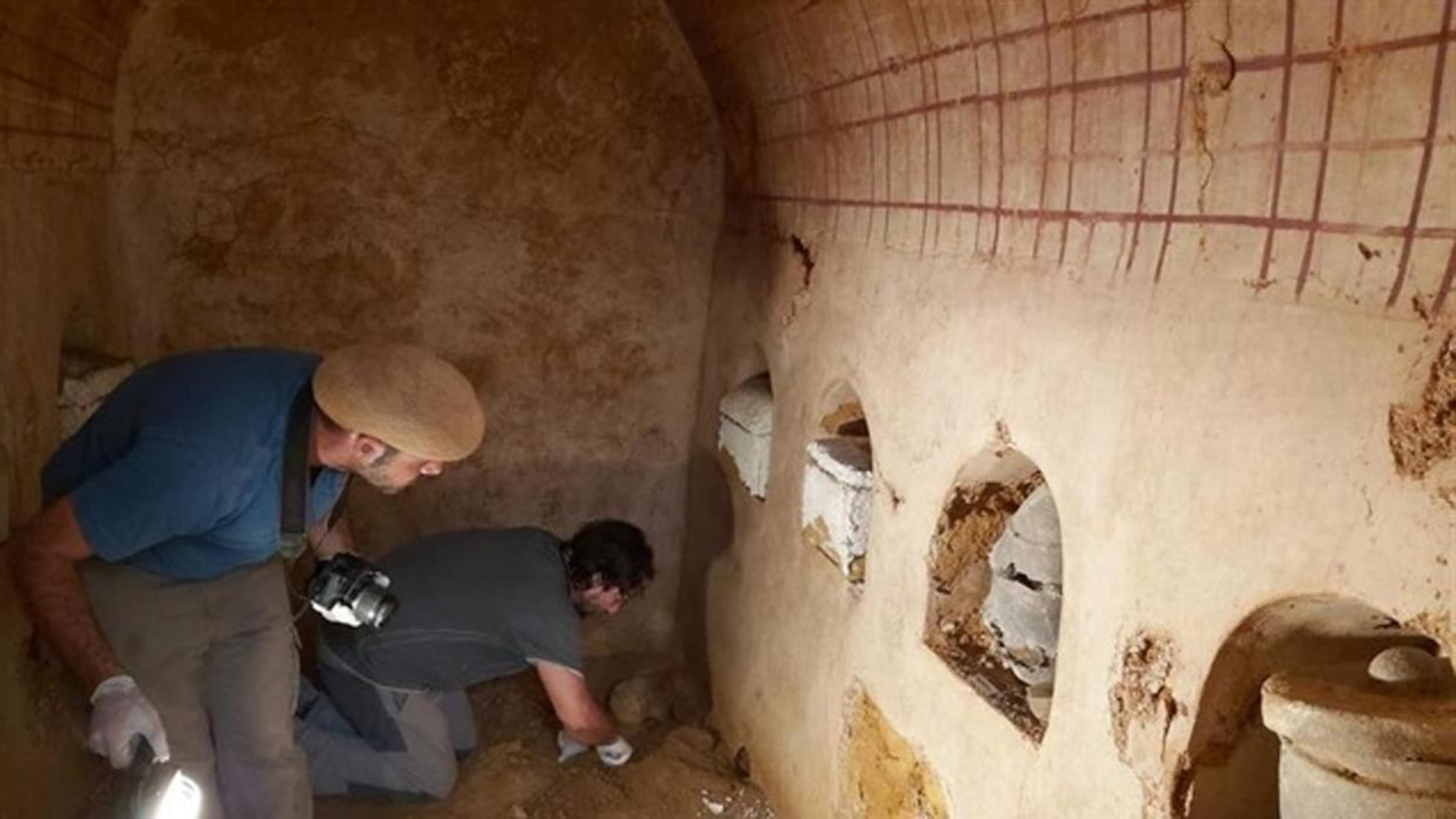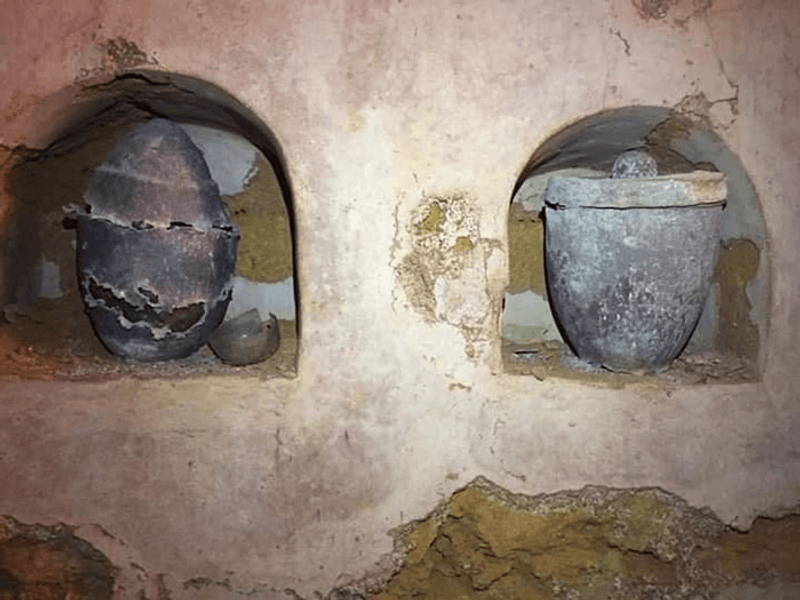In 2019, a remarkable discovery in the small Spanish town of Carmona provided archaeologists with a unique insight into the lives of ancient Roman elites. While excavating for a swimming pool, a resident inadvertently stumbled upon an intact Roman tomb, buried for nearly two millennia. Within this tomb, researchers uncovered a small quartz crystal bottle that held the preserved remains of a luxury perfume from the 1st century AD. The essence inside, identified as patchouli, offers a rare glimpse into the lifestyle, trade networks, and social status of Rome’s wealthy elite.
The Discovery: A Roman Family Tomb in Carmona
The story begins when local authorities in Carmona, located near Seville, called in archaeologists after a resident uncovered an underground chamber. Upon investigation, the team found a Roman family tomb, still intact, dating to the 1st century AD. Six burial urns were discovered alongside various funerary offerings, including the quartz crystal perfume bottle that would become the focal point of their study.

Among the offerings was the burial of a woman, estimated to have died around the age of 40. The delicate bottle found near her remains was still sealed with bitumen, preserving the contents inside. This remarkable find immediately piqued the interest of archaeologists and scientists, leading to a detailed investigation into the vessel’s contents.
Roman Perfumes: Symbols of Wealth and Status
Perfumes were far more than simple cosmetic tools in ancient Rome—they were a powerful indicator of status and wealth. The Roman elite frequently adorned themselves with luxury oils and fragrances, which were integral to both daily life and rituals. From lavish bathing rituals to public appearances, perfumes allowed the wealthy to display their social standing.
The perfume found in Carmona, however, was not just any ordinary fragrance. Using cutting-edge technology like X-ray diffraction and scanning electron microscopy, researchers identified the composition as patchouli oil—an exotic ingredient imported from India. This revelation confirmed the significant social status of the deceased, as such imported goods would have been highly expensive and rare in the Roman Empire.
Patchouli: A Luxury of the Ancient World
Patchouli, with its earthy, musky scent, would have been a rare and sought-after commodity in ancient Rome. Originating from Southeast Asia and India, patchouli oil reached the Roman Empire via extensive trade routes, including the Silk Road. Its presence in a Roman tomb indicates not only the wealth of the individual but also the sophisticated trade networks that connected the Roman Empire to distant parts of the world.
In Roman culture, rare imported fragrances like patchouli symbolized power and exclusivity. The woman buried with the perfume bottle was likely part of an elite class that could afford such luxuries, using these rare oils to distinguish themselves socially and perhaps spiritually.

The Craftsmanship: A Quartz Crystal Bottle
Equally significant to the contents of the bottle was its design. The vessel was carved from quartz crystal, a material associated with purity, wealth, and luxury in Roman times. Roman artisans were renowned for their craftsmanship, and bottles like this one—known as unguentaria—were often made from precious materials like glass, alabaster, and crystal.
The quartz crystal bottle found in Carmona was not merely a container but a symbol of prestige. The exquisite craftsmanship suggests that the bottle itself was as valuable as the contents inside. The high-quality materials and intricate design further underline the elevated social standing of the woman interred in the tomb.
Perfume in Funerary Practices: A Bridge to the Afterlife
Perfume played a significant role in Roman funerary practices. It was believed that aromatic oils could purify the body and guide the soul toward the afterlife. The inclusion of perfume in a burial was not only an offering to the deceased but also a way to ensure that their journey beyond life was filled with the finest luxuries available.

The fact that this perfume was buried with a high-status individual demonstrates its importance not only as a luxury commodity but also as a spiritual symbol. Romans believed in a seamless transition from life to death, where their wealth and status could accompany them. Thus, perfumes like patchouli were seen as essential to both life and death.
The Social and Economic Context of Roman Perfumes
The discovery of the perfume bottle in Carmona sheds light on the broader economic and cultural landscape of the Roman Empire. Trade routes connecting Rome to distant regions, including India and China, allowed for the exchange of exotic goods, including spices, silks, and perfumes. The presence of patchouli in Carmona demonstrates the far-reaching influence of Roman trade and the Empire’s appetite for luxury goods from the East.
Moreover, the Roman elite’s use of perfumes was a reflection of their power and wealth. By adorning themselves with rare and costly fragrances, they could publicly display their elevated social position. The bottle found in Carmona serves as a testament to the luxurious lifestyles of Rome’s upper class and their desire to stand apart from the lower classes.

Conclusion: A Rare Glimpse into Roman Life and Death
The discovery of the quartz crystal bottle and its patchouli perfume in Carmona offers an extraordinary glimpse into the world of ancient Roman elites. From the intricate craftsmanship of the bottle itself to the rare and exotic contents inside, this find encapsulates the wealth, power, and sophistication of the Roman Empire. More than just a functional item, the perfume bottle represents a connection between life, death, and the afterlife, serving as a reminder of the importance of luxury, status, and spiritual belief in Roman society.
This discovery not only enriches our understanding of Roman funerary practices but also highlights the far-reaching trade networks and cultural exchanges that shaped the Roman Empire. The perfume bottle of Carmona, with its ancient patchouli oil, stands as a symbol of the Empire’s wealth and its enduring legacy in history.

